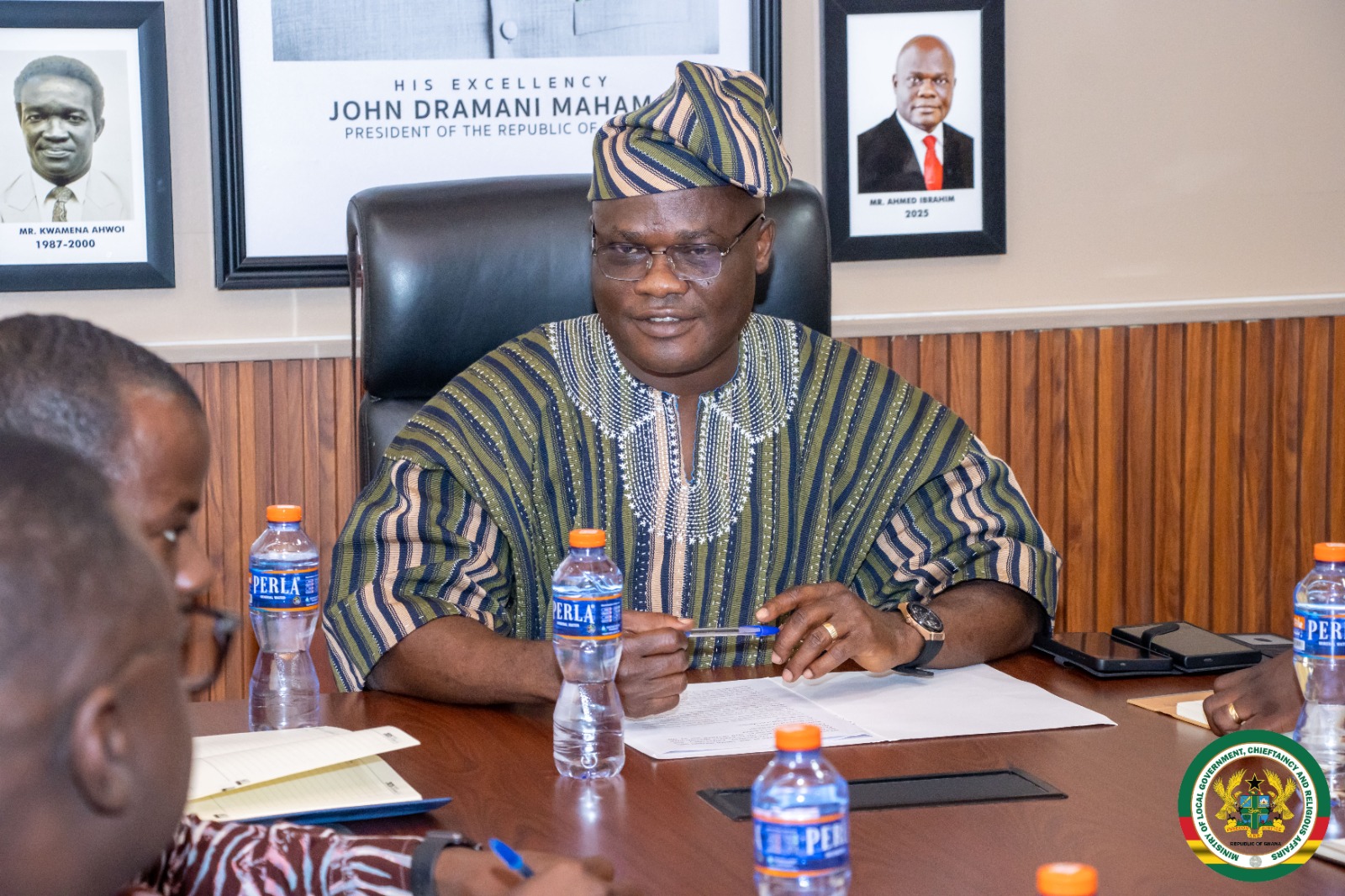The spirit of community and cleanliness was alive on Saturday, 1st November, 2025 as residents of Ledzokuku, Krowor, and La Dadekotopon came out in their numbers to mark the Second National Sanitation Day with renewed zeal and unity.
From the early hours of the morning, Residents, assembly members, Volunteer groups, students from the Nungua Senior High School, youth associations and traders were seen sweeping streets, desilting gutters, clearing weeds, and collecting heaps of refuse from major roadways and markets.
The exercise, which forms part of government’s National Sanitation Campaign that aims to promote behavioral change and community ownership of environmental cleanliness. Officers from the Ministry of Local Government, Chieftaincy and Religious Affairs, Traditional Leaders together with the Municipal Assemblies and Zoomlion Ghana Limited, supported the cleanup activities.
At Krowor, the President of the Greater Accra Regional House of Chiefs, King Prof. Oboade Odaifio Welentse III, Vice President of Greater Accra Regional House of Chiefs, Nene Tetteh Wakah III and the Municipal Chief Executive, Hon. Paul Afotey Quaye, led residents to desilt drains along the Teshie Township roads, emphasizing the need for sustained citizen participation.
Saturday’s turnout shows that cleanliness is everyone’s responsibility and when communities take charge, Ghana can become a cleaner, healthier place to live.
In Teshie Tsui Bleoo, youth groups and residents turned the exercise into a lively community affair, ensuring that every drainage system was clean, while removing shrubs around pathways.
At La Dadekotopon, residents took the exercise to heart, transforming neglected spaces into tidy public areas. The Assembly, led by Hon. Alfredos Anyetei, collaborated with traditional leaders and schools to educate participants on proper waste segregation while clearing pathways.
The Ministry of Local Government, Chieftaincy and Religious Affairs, led by the Minister Hon. Ahmed Ibrahim, the Deputy Minister, Hon. Rita Naa Odoley Sowah and the Chief Director, Alhaji Amin Abdul – Rahaman along with a delegation from the Ministry joined these Communities to ensure there was adherence to the first Saturday of the month clean- up exercise as scheduled by the president.
The Second National Sanitation Day reinforces the message that a cleaner Ghana is achievable when citizens, assemblies, and Traditional leaders work hand in hand.
Source: Chantal Aidoo
Public Relations Unit, MLGCRA

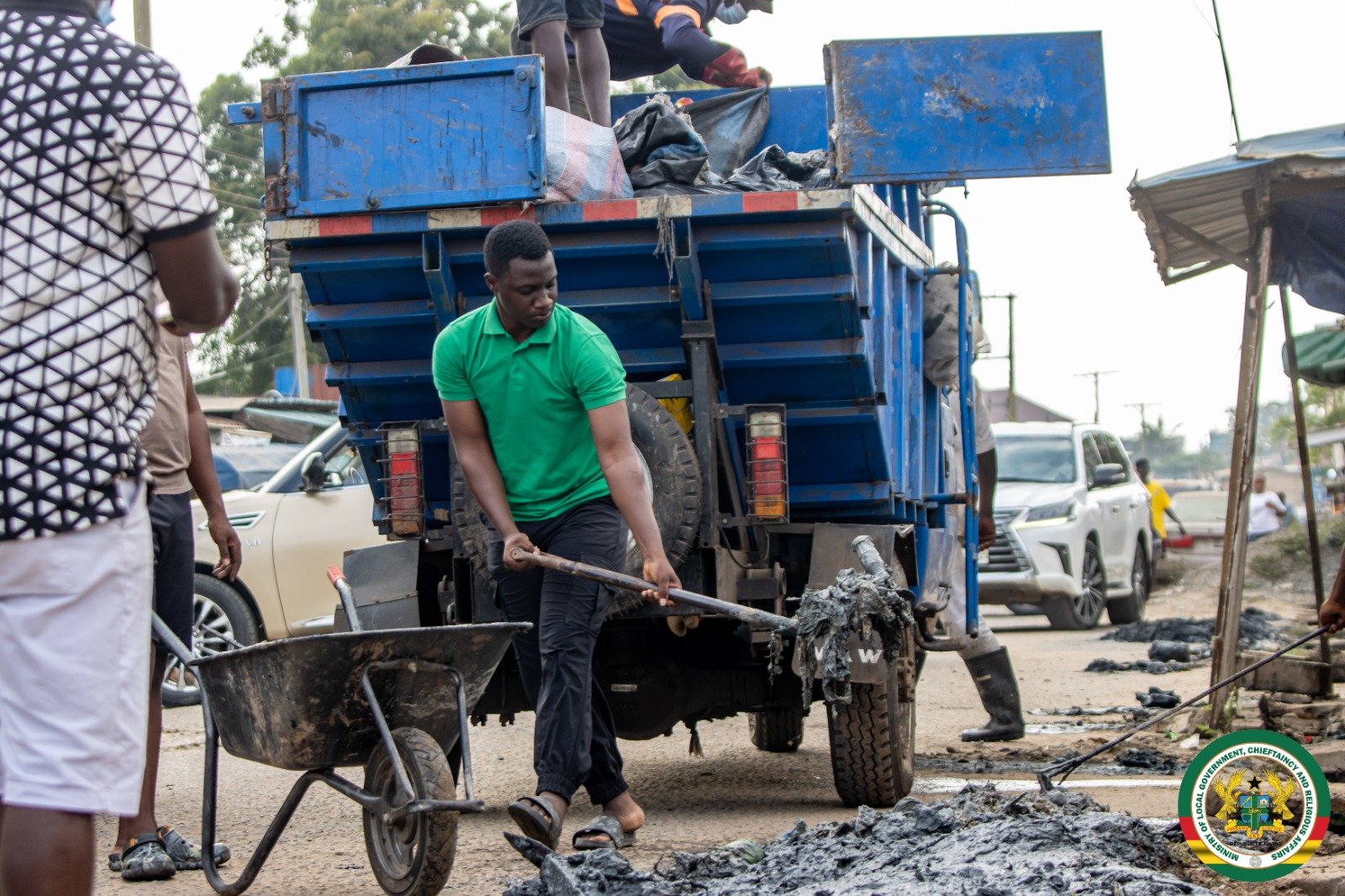
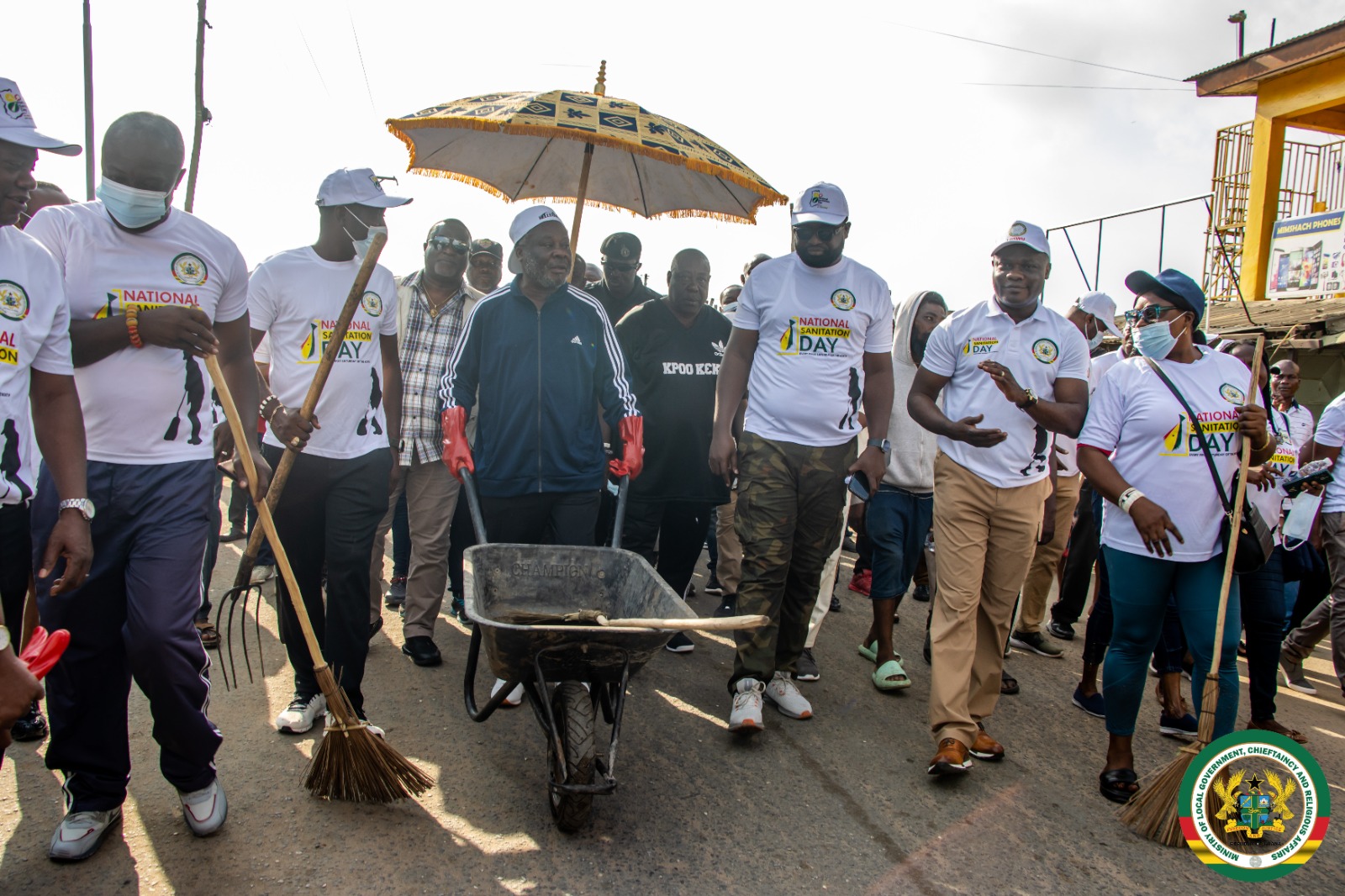
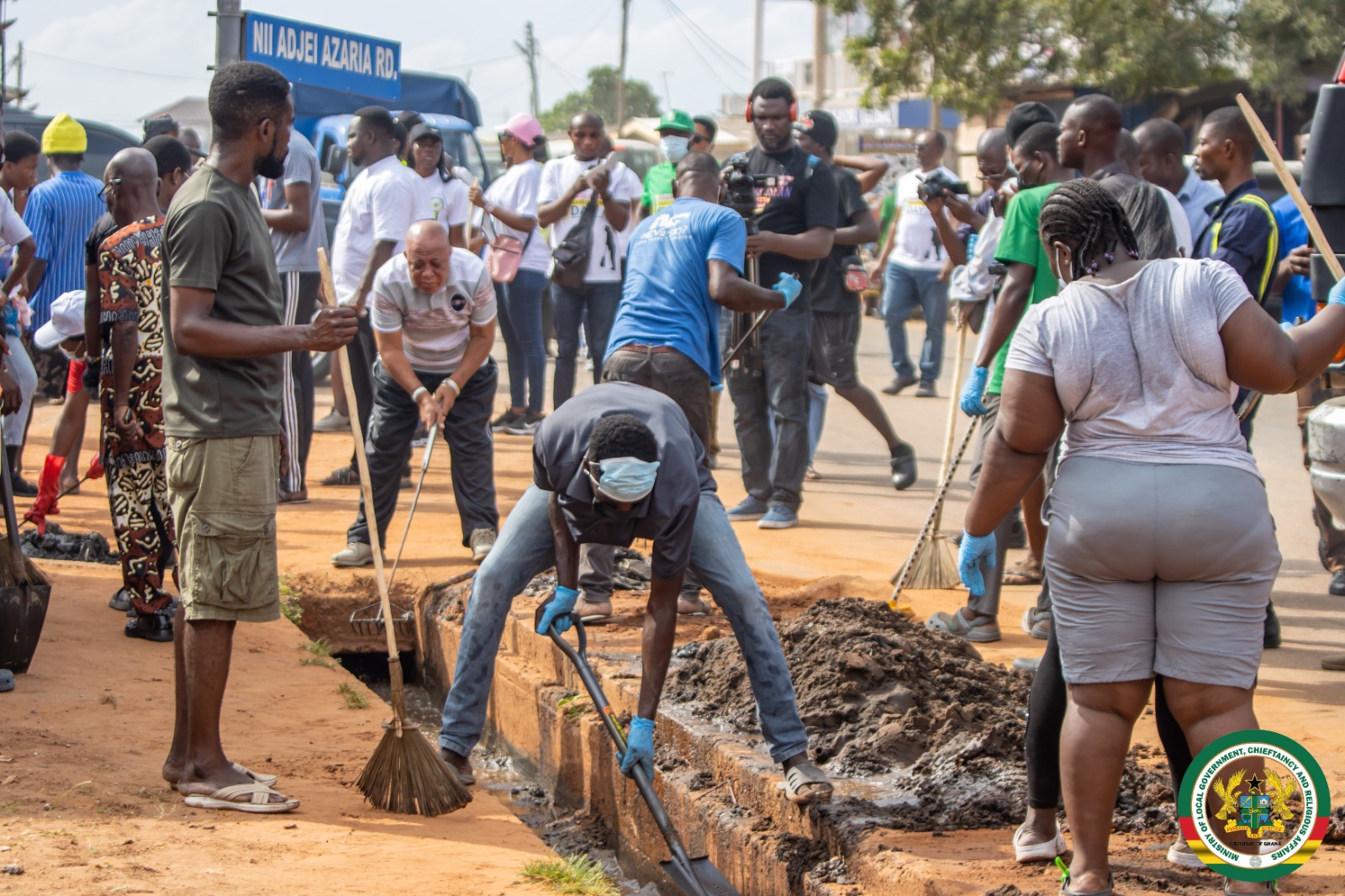

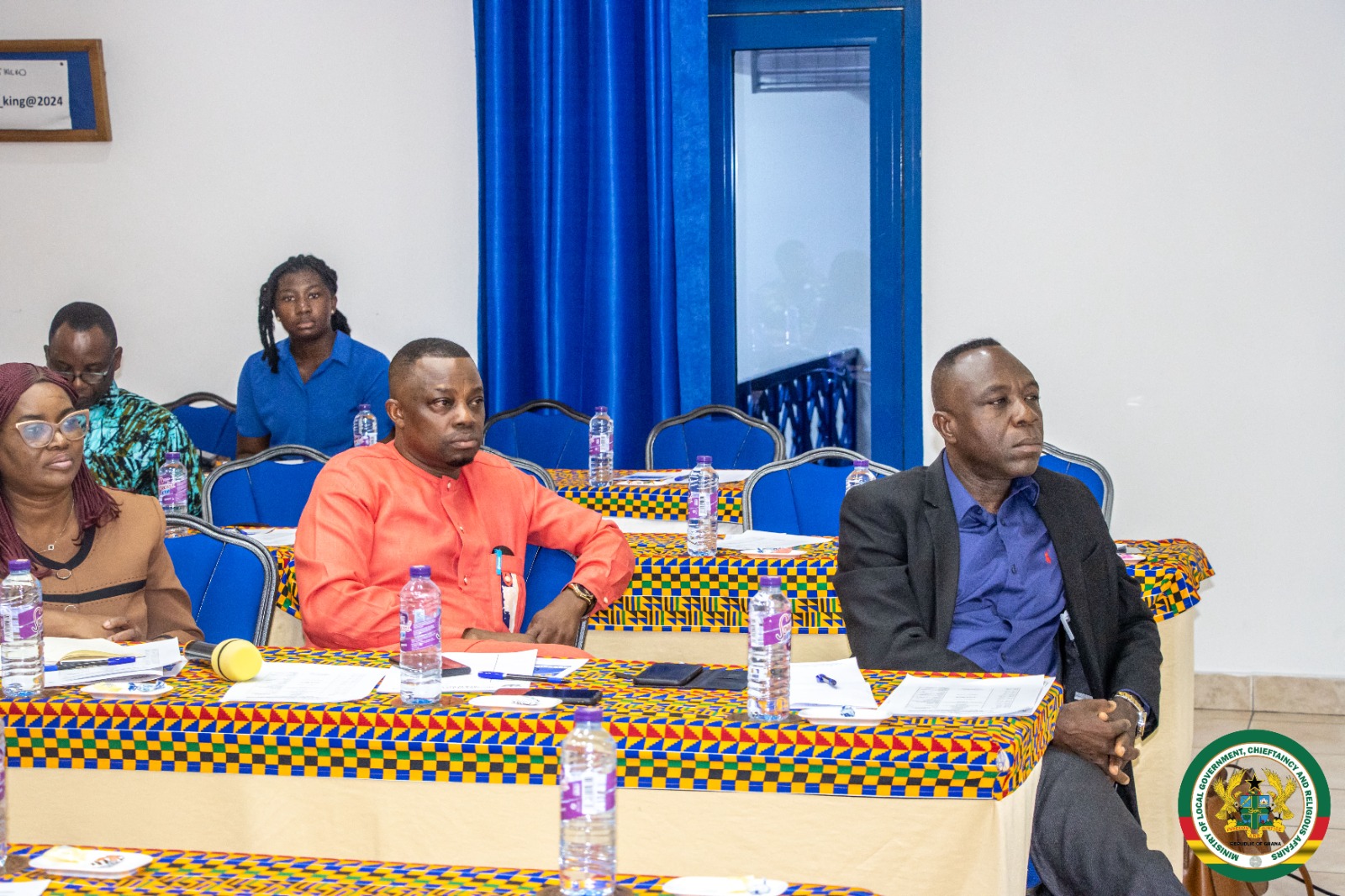
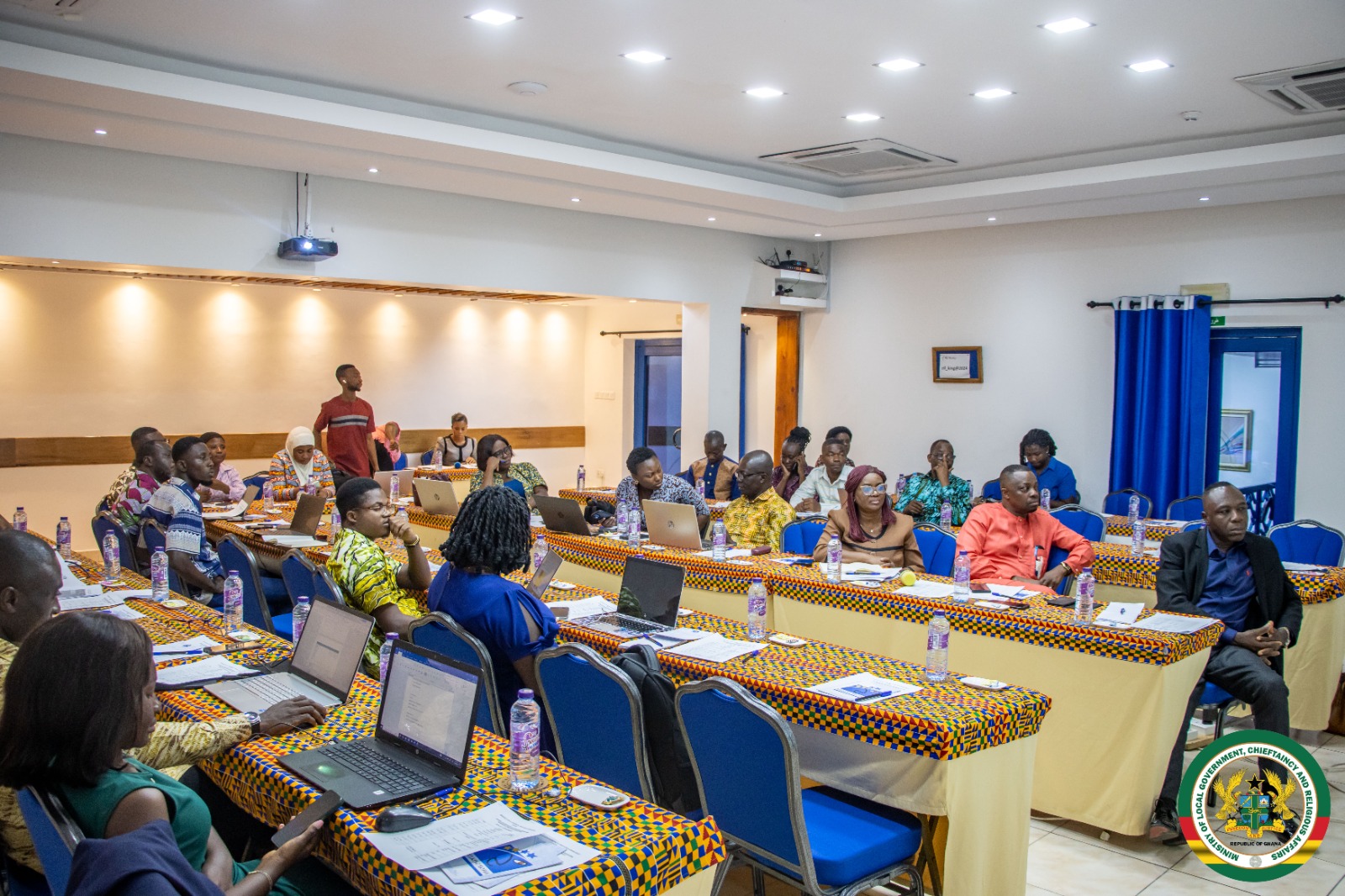
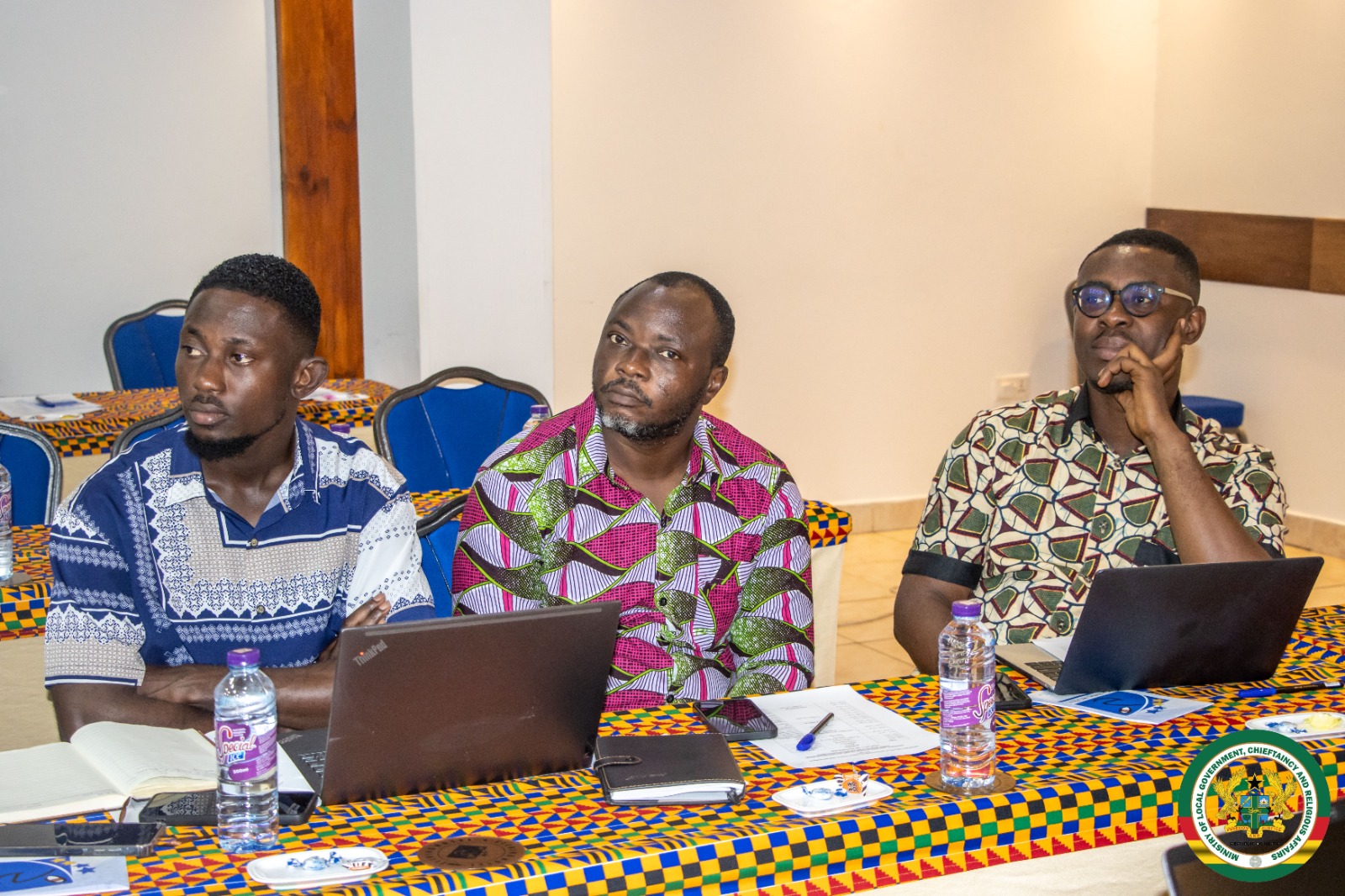
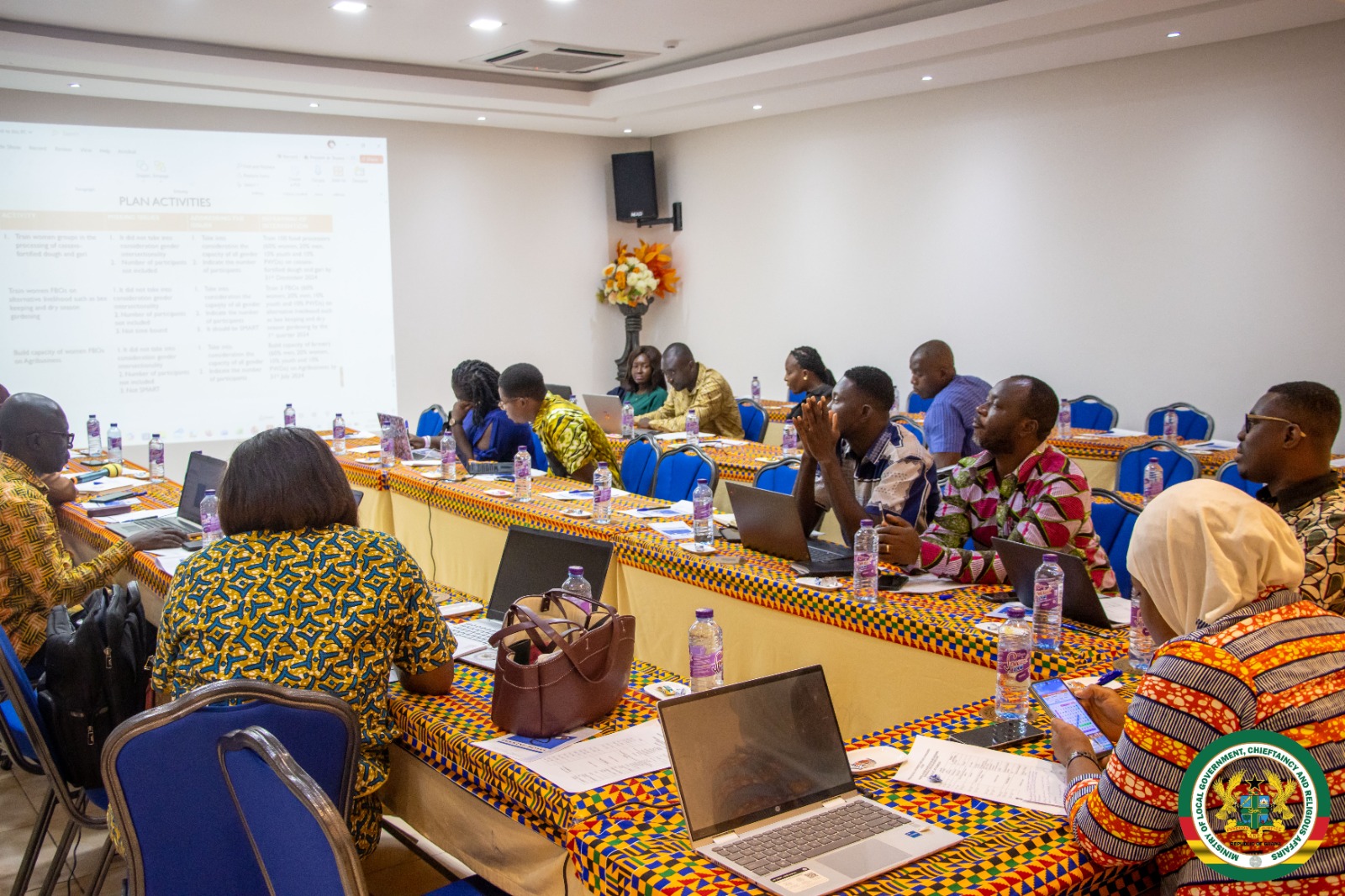
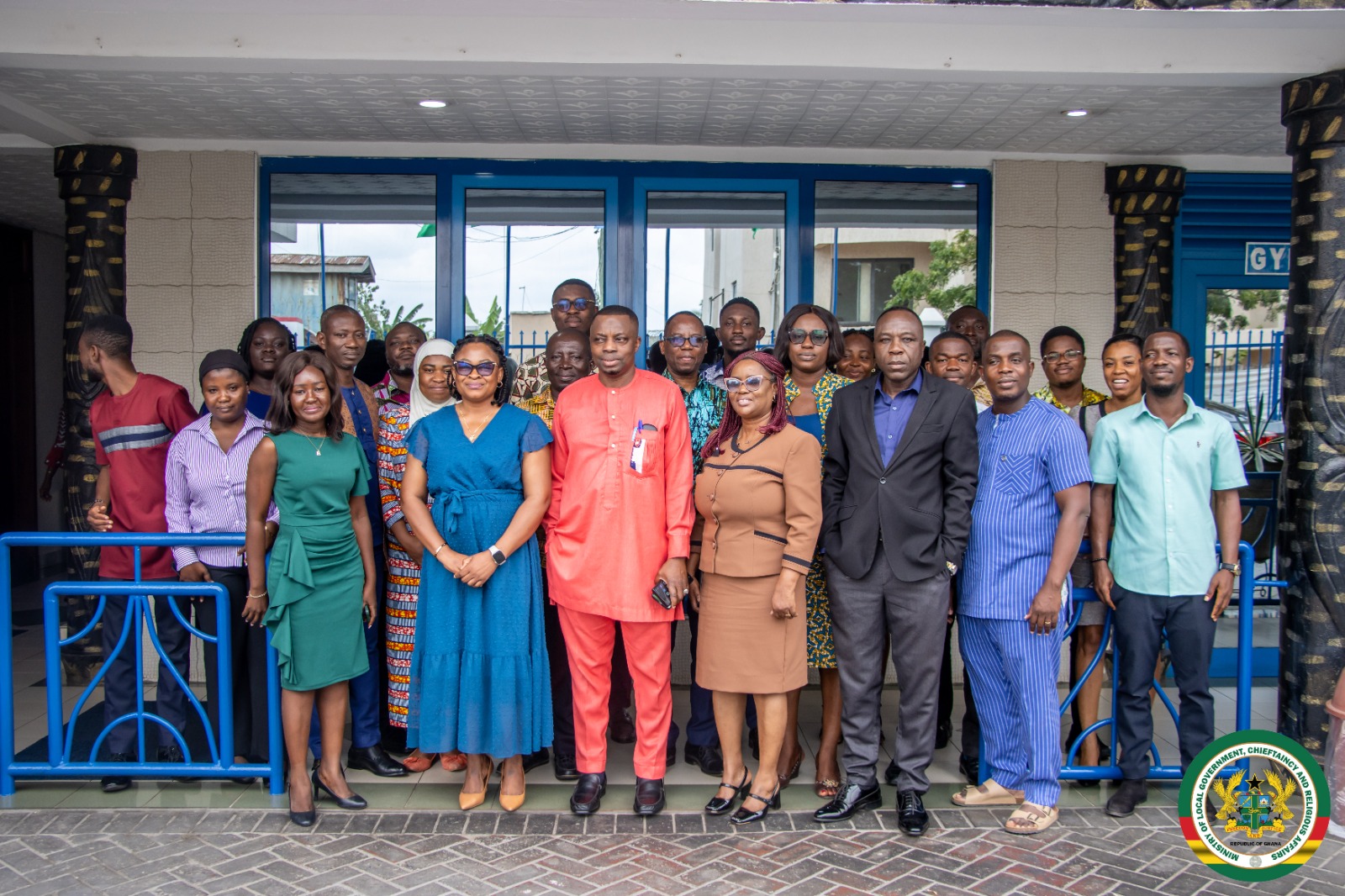
.jpeg)
.jpeg)
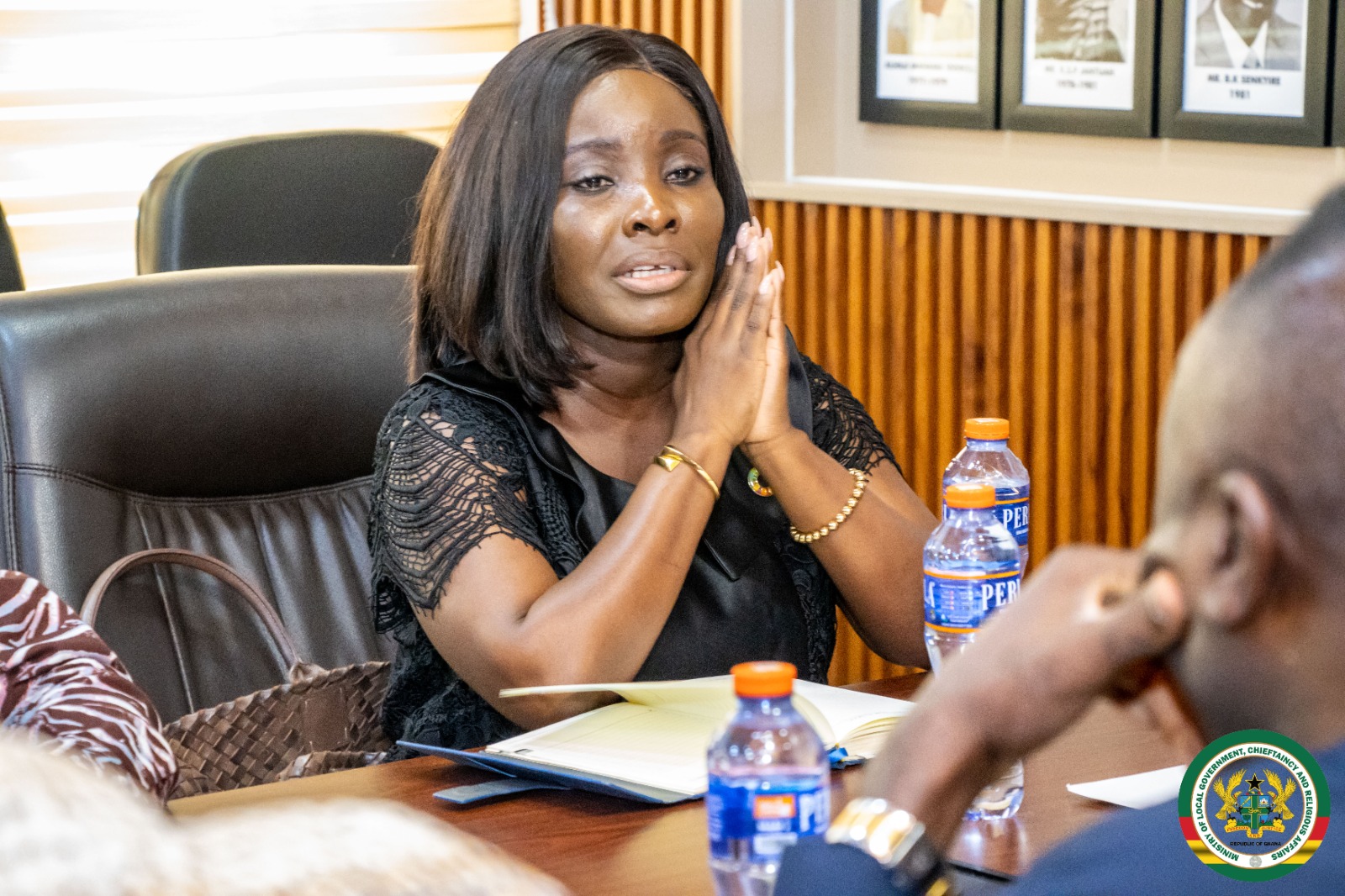
.jpeg)
.jpeg)

.jpeg)
.jpeg)
